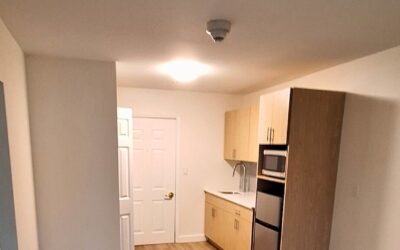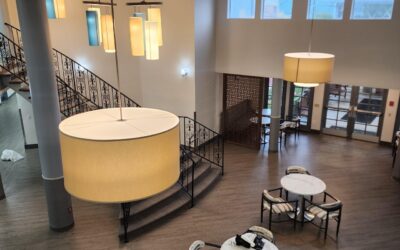Starting a commercial construction project can be an exciting but daunting task. Not only do you have to consider various factors such as location, design, and budget, but you also have to obtain a commercial building permit. A building permit is a legal document that outlines the guidelines and standards required for your project to meet the local, state, and federal building codes. In this blog post, we’ll cover everything you need to know about commercial building permits.
Why Do You Need a Commercial Building Permit?
It Can Make or Break the Start of Your Project:
Before you start any construction project, you need to obtain a commercial building permit. This permit ensures that your construction project meets the safety, health, and welfare standards set out by the local, state, and federal building codes. Having a permit also informs the public that your project is legal and safe. Failure to obtain a commercial or residential building permits can result in hefty fines, legal action, and even the shut-down of your construction project.
How to Obtain a Commercial Building Permit?
Be Sure You Fully Understand the Process:
The process of obtaining a commercial building permit can be complex and varies depending on the state and county. Generally, the process includes submitting several documents such as the building plans, zoning approvals, environmental permits, and engineering reports. You will also have to pay a fee for the permit, which varies by location and the scope of the project. To simplify the process, it’s best to consult with a building permit expediter or a local building department.
What Are the Requirements for a Commercial Building Permit?
Have All of These Requirements Ready:
Several requirements must be met before obtaining a commercial building permit. One of the most important requirements is having a qualified design professional, usually an engineer or architect, to design and sign off on the plans. The plans need to be detailed and demonstrate that the construction meets the local building codes. Other requirements may include zoning and land-use approvals, environmental permits, and fire safety plans. Always check with your local building department to ensure you meet the local requirements.
What Inspections Are Required During Construction and After?
During construction, several inspections are required by the local building department to ensure that your project meets the building codes. These inspections are carried out at several stages of the construction process, such as before pouring the foundation, framing the structure, and installing plumbing and electrical systems. After construction is completed, a final inspection is carried out to confirm that the project meets the building standards and codes.
What Happens if You Don’t Get a Commercial Building Permit?
Do Not Start Your Construction Project!
It’s never advisable to start a construction project without obtaining the required permits. The penalties for not obtaining a commercial building permit can be hefty and can include fines and legal action. If the local building department discovers that you have an illegal construction, they may shut the project down and order you to remove all the completed work. This can lead to a significant financial and legal headache and cause unnecessary delays in your construction deadline.

Understanding the Reasons Behind Denial of a Building Permit Application
Getting a commercial building permit is an essential process that you have to go through when you’re building a new property or doing renovation projects. Commercial building permits are issued by local building authorities and are necessary to ensure that your building meets all safety, zoning, and other requirements.
However, sometimes, you may find yourself in a situation where permit issuance or application gets denied. This can result in delays, increased costs, and even project cancellation. Next, we’ll discuss some of the common reasons why permits get denied and what you can do to avoid these issues.
Failure to Meet Building Codes:
Building codes are established to ensure that your building meets the minimum safety standards. If your building plans don’t comply with the current building code requirements, your permit application may get denied. Fore example, if you are building an accessory dwelling unit, you can not try to sell it separately from the main home. Therefore, it’s essential to work with a professional architect or contractor to make sure that your plans meet local building codes.
Zoning Restrictions:
Local zoning laws dictate how building permit projects in your area can be used. For instance, you may not be allowed to build a commercial property in a residential zone but you can get a permit for an existing building. Before submitting your permit application, consult with the local zoning board to ensure that you comply with all zoning laws.
Unfinished Applications:
Some of the reasons that permit applications get denied are because of incomplete or inaccurate applications. Ensure that you’ve filled out all the necessary documents, provided accurate information, and included the necessary supporting documents. This way, you improve your chances of receiving a permit.
Environmental Concerns:
The environmental impact of your building can also affect your permit application. For instance, you may not be allowed to build on a protected wetland or green space. Ensure you have consultation with the authorities concerned about any potential environmental hazards and how to mitigate them before submitting your application.
Lack of Professional Help:
Insufficient expert advice can result in mistakes and delays to your permit application process. Working with professional contractors, architects, and lawyers can help you navigate complex building regulations and ensure your application meets all relevant criteria.
Applying for a commercial building permit can be a complex process, and there are several reasons why your application may get denied. By understanding the various reasons behind permit denial, you can take steps to avoid potential problems and ensure a more successful permitting process. That includes working with reliable professionals, consulting with local authorities, and making sure that your building plans comply with all local and state regulations. By taking these easy steps, you can improve your chances of getting your permit approved and moving ahead with your project on time.

Speed Up Your Construction Projects Building Permit Process: Our Tips
When it comes to building your commercial property, getting a building permit on time is crucial. It is an essential step in the construction process that ensures that the building meets all the necessary building and safety standards. However, the building permit process can be lengthy and complicated, sometimes taking several weeks or even months. Lastly, we’ll share some tips that can help you speed up your commercial building permit process, so you can get started with your project as soon as possible.
Hire a Permit Expediter
One way to speed up the permit process is to hire a permit expediter. These professionals can help you navigate the often-complicated application process by reviewing your application and ensuring that it is complete and accurate. They are also familiar with the permit requirements and can help you avoid common pitfalls, such as incorrect or incomplete forms. Permit expediters also have established relationships with local building departments and inspectors, which can help expedite the process and get your permit approved faster.
Use a Pre-Approved Plan
Using a pre-approved plan can help speed up the building permit process. Pre-approved plans are architectural plans that have already been approved by your local building department and meet all the necessary building codes and standards. By using a pre-approved plan, you can avoid the lengthy process of seeking approval for a custom plan, which can take weeks or even months. Pre-approved plans are typically available for commercial buildings such as offices, retail buildings, and industrial spaces.
Submit a Complete Permit Application
Submitting a complete permit application is criticalto getting a permit approved quickly. Ensure that your application includes all the necessary forms and information, including site plans, engineering reports, and other required documentation. Be sure to have the funds ready for permit fees. If you’re unsure about the information required, you can contact your building department or hire a permit expediter to review your application.
Be Available for Inspection
Inspections are a crucial part of the permit process, and being available for inspections can help speed up the process. By ensuring that your building site is accessible for inspection, you can avoid delays and missed appointments that can hold up the process. You should also ensure that your building project meets all the building codes and standards before scheduling inspections to avoid unnecessary delays.
Communicate With the Building Department
Effective communication with your local building department is essential for a fast permit process. Communicating regularly with city staff and inspectors can help keep you informed about any issues or changes that may arise during the permit process. It’s also vital to respond promptly to any requests for information or documentation to avoid any delays.
Getting a commercial building permit can be a lengthy and complicated process, but by following these tips, you can get the permit approved quickly and efficiently. Hiring permit expediters, using pre-approved plans, submitting a complete permit application, being available for inspection, and communicating effectively with local building departments are the keys to a fast turn-around time. By working with the building department and following their requirements, you can get your commercial building project underway and completed in a timely manner.
Conclusion
Obtaining a commercial building permit is a necessary step before starting any construction project. This process ensures that your project meets the safety, health, and welfare standards set out by the local building codes. By understanding the permit process and meeting the necessary requirements and inspections, you can avoid costly fines and legal battles. Ensure to consult with a building permit expediter or a local building department for further information.
South Coast Improvement
We make it easy at South Coast Improvement Company because we handle everything correctly the first time. Take the hassle out of starting a new project and leave it to us.
View Our Work
Brandywine Haverford Estates by Monarch
South Coast Improvement Company has completed interior renovations at the senior living community, Brandywine Haverford Estates by Monarch. We were entrusted with enhancing the facilities, and the results speak for themselves. The team brought diligence and...
Nouveau Marc by Barclay House
South Coast Improvement Company proudly partnering with QSL Management delivered a comprehensive renovation at Nouveau Marc by Barclay House, a premier senior living community. This project focused on revitalizing key resident areas with an emphasis on safety,...






